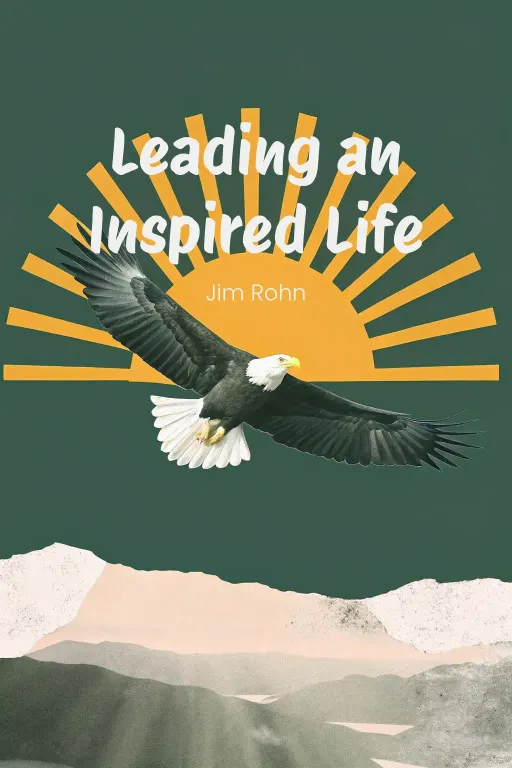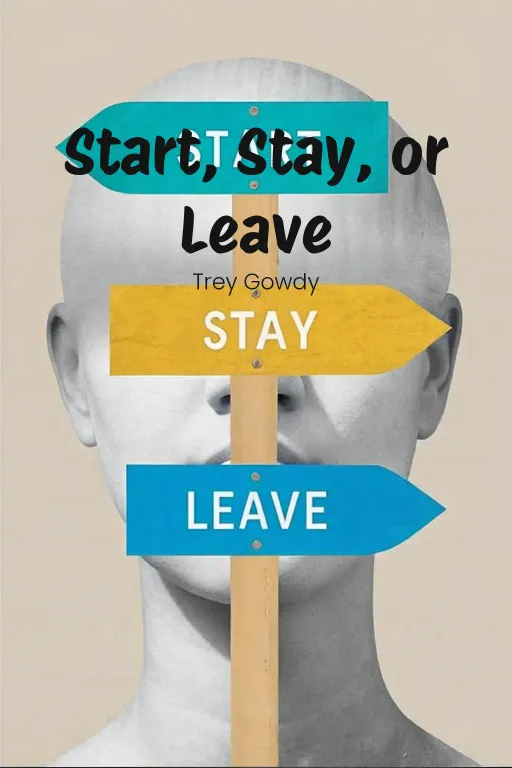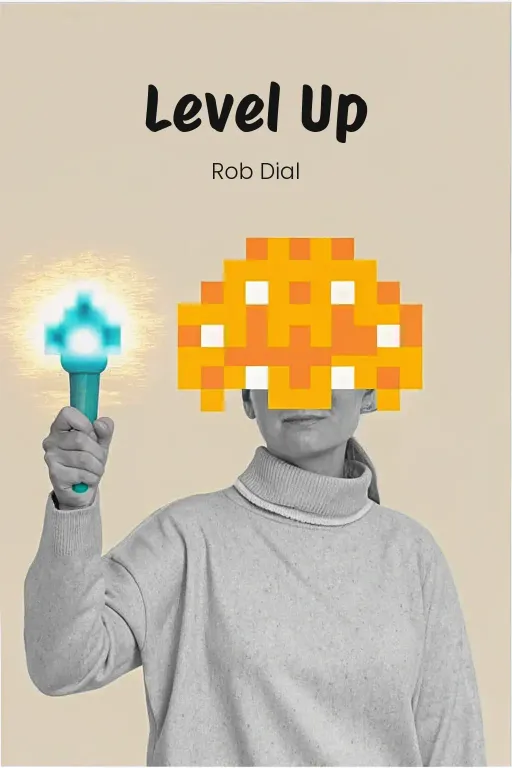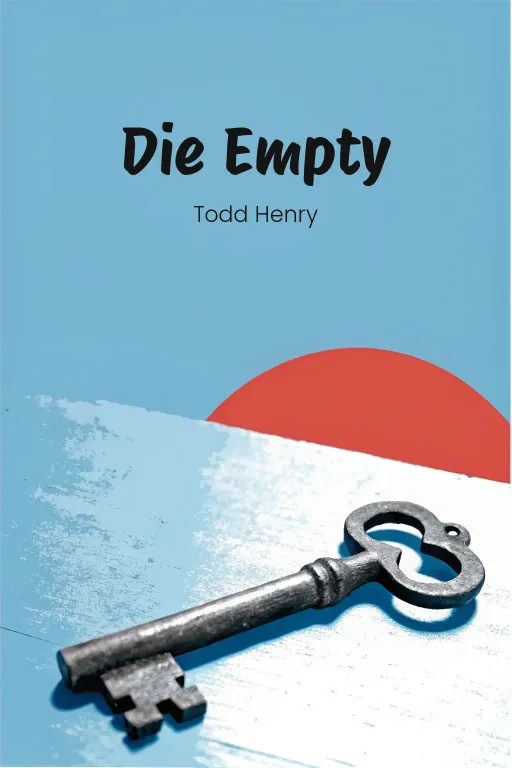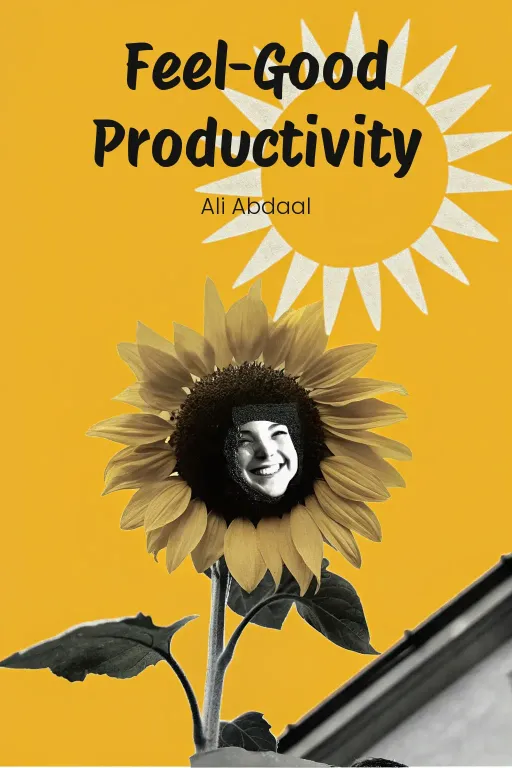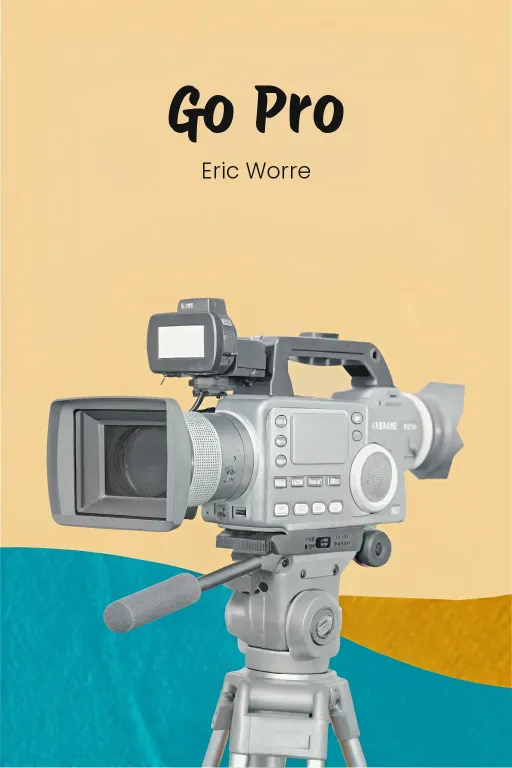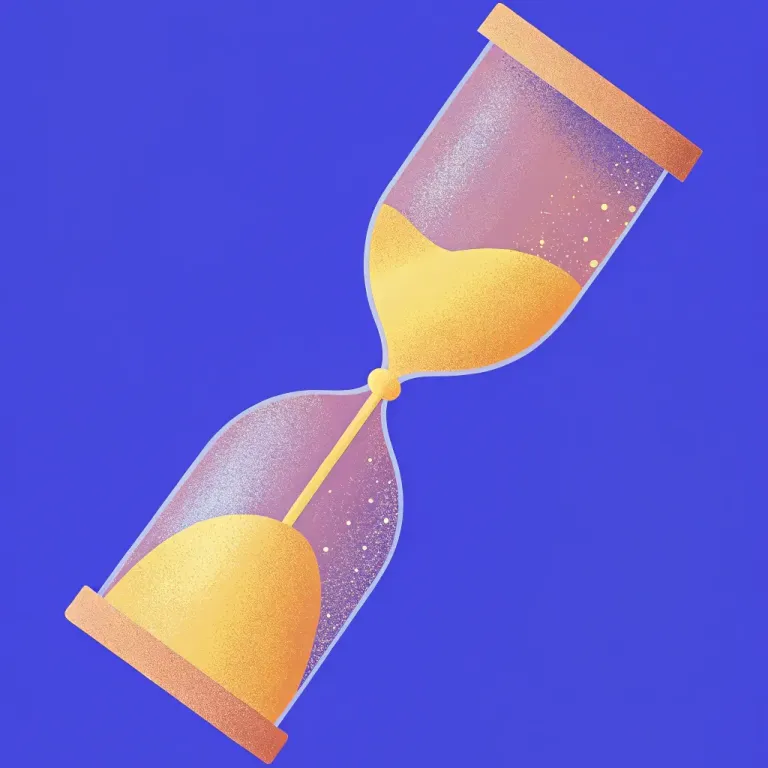
Die Empty: Live, Don't Just Exist
Podcast by Beta You with Alex and Michelle
Unleash Your Best Work Every Day
Introduction
Part 1
Alex: Hey everyone, welcome back! Let’s kick things off with a pretty profound question: Imagine leaving nothing on the table, you know? No talent wasted, no dream left gathering dust. So that when you look back, you can honestly say, "I gave it absolutely everything I had." What would that feel like? Michelle: Woah, Alex, talk about starting big! That's the kind of question that really makes you stop and think. Most of us are just trying to get through the week, we don’t even consider how much we could actually achieve. Alex: Exactly, Michelle! That's where Todd Henry's book, “Die Empty: Unleash Your Best Work Every Day,” really hits home. It's like a jolt to the system, telling us to snap out of autopilot and start actively shaping our lives. The core message is simple, but so powerful: We all have unique skills and something important to contribute. But if we don't use them intentionally, we could end up leaving our best work undone. Michelle: Hmm, is this just another productivity book telling us to work harder? Alex: Not at all. It goes way beyond ticking off boxes on a to-do list. Henry pushes us to think bigger than being busy. It’s about creating something that lasts, creating a meaningful impact, whether at work, with family, or in the wider world. It’s not just about abstract concepts either; the book is full of actionable strategies to stay curious, understand yourself better, and be open to taking chances. Michelle: Okay, I'm intrigued. So, what's on the agenda for today? Alex: We're diving into three major ideas. First, we'll talk about the power of living intentionally – why understanding your purpose is absolutely essential for a life that feels fulfilling. Then, we'll expose the sneaky traps of mediocrity, those habits and thought patterns that hold us back. And finally, we’ll discuss concrete tools for continuous growth, practical steps to keep you on track with your purpose and the legacy you want to create. Michelle: Sounds like a lot, Alex. Purpose, avoiding mediocrity, and growth – it's practically a life manual! Let's see if we can break it down and make this stuff actually feel achievable for everyone listening.
Living Intentionally
Part 2
Alex: So, Michelle, we're diving into intentional living, a real cornerstone! Now, is this just a fancy way of saying "get your act together," or is there something more substantive here? Michelle: I hear you. It “sounds” great, Alex, but is it just another self-help buzzword? I mean, are we just talking about better planning, or is there a deeper philosophy at play here? Alex: It's definitely more than planning, Michelle. It’s about “alignment”. Are your daily actions actually reflecting your values and the legacy you want to leave? We are too often on auto-pilot. We’re doing tasks, meeting deadlines, checking boxes. But we rarely pause and question why we're doing it. Does it “really” matter? Todd Henry emphasized this very point. Michelle: Okay, I’m intrigued. But let’s say (and I suspect many listeners feel this way) someone doesn't even know what they value. How do they even begin to figure that out? A lot of folks are just trying to survive, you know? Deeper purpose? That sounds like a luxury. Alex: That’s fair. Well, Henry stresses the importance of reflection. Set aside time, and ask yourself the tough questions. What truly fulfills me? What do I want to be remembered for? List the points in your life where you felt genuinely happy, proud, or alive. You watch, and you'll see patterns, right? If you love mentoring someone at work, you might value helping others. Michelle: Right, but what if the list is just "binge-watching shows, more binge-watching, and ordering takeout?" Do we need some kind of intervention at that point? Alex: <Laughs> That's part of the process—recognizing where you might be distracting yourself from a deeper question. Henry actually makes a distinction between “false productivity” and meaningful engagement. You're ticking off 20 tasks a day, but if they are not connected to your values or long-term goals, you're just spinning your wheels! Michelle: Okay, I see that. But let's be real – life is full of boring stuff you just have to do to keep things running. So, how do we square that with this grand idea of "intentional living?" Alex: Great point! Henry touches on this as well. So, it’s not about escaping responsibilities, but rather, redefining your perspective on them. You can connect mundane tasks to something deeper, if you see them as part of a bigger picture. Folding laundry isn’t meaningful by itself, right? But if it’s part of nurturing your family, it becomes a care and intention act. Michelle: Ah, I see the thread. So, it's about the mindset shift. Not every moment is going to be earth-shattering, but even the small stuff matters when it connects to a broader purpose. Alex: Exactly. And purpose doesn't have to be a grand mission. It is deeply personal. Look at Candy Chang's "Before I Die" wall. It shows how big and small personal priorities are. It invited people to pause and consider what really matters. Michelle: That project was amazing! Some wrote these profound things, like reconnecting with family. Others added humor, like "I want to eat a whole pizza by myself." I love that contrast! Alex: Exactly! Chang's work respected all of those desires and reminded us that intentional living isn't one-size-fits-all. Get clarity on what's meaningful to you. Michelle: Agreed. Clarity is power, I guess. Okay, but here's a curveball. Let's talk about the enemy, complacency. How do we avoid routines that erode our ability to live intentionally? Alex: Oh, complacency. It can be tricky because it's sneaky, right? Looks like comfort, right? One of Henry's key ideas is that growth happens outside the comfort zone. New things, tough questions, and even failures are crucial to avoiding stagnation. Michelle: Let me play devil's advocate. Isn't comfort necessary sometimes? Maybe chasing bold goals or discomfort isn't for everyone. Life isn't always inspirational. Alex: True! Rest and stability are important, but they can’t be your default setting forever. Ask yourself, "Am I choosing comfort out of fear or deliberate balance?" Don't abandon comfort, but ensure it doesn't become a hiding place from growth. Michelle: Right, so we're not climbing Everest every day, but we're not permanently glued to the couch either. Metaphorically speaking, anyway. Alex: Precisely! Intentional living asks you to recognize your patterns. Make conscious choices. Use tools! Ask yourself—"What’s one thing I can do today to move the needle toward my long-term goals?" Those questions will break cycles of inertia. Michelle: Okay, Alex, let's get practical. Someone reflects, identifies values, and realizes they're stuck. What's step one? Alex: Step one is mindful prioritization. Where should your time and energy go? Ask yourself—"If today were your last day, would you want to spend it doing what you’re about to do?" That helps cut through distractions. Michelle: Heavy, but effective. A sobering way to avoid, you know, 10 hours a week in pointless meetings about meetings, right? Alex: <Laughs> Exactly. But it is also liberating. Free yourself from the noise because you know what truly matters—and also what doesn't. Then, instead of just answering emails, ask, "How are these things serving the bigger picture?"
Overcoming Mediocrity and Stagnation
Part 3
Alex: Okay, so this mindset naturally leads us to our next core topic: “Overcoming Mediocrity and Stagnation.” If intentional living is about aligning with your values, then fighting mediocrity is about spotting those traps that pull you out of alignment and figuring out how to escape. Michelle: Exactly! It's like knowing your destination and then recognizing the detours that lead you astray. Alex: Right. Mediocrity doesn’t just suddenly appear; it kind of creeps in. It's those habits, routines, and mindsets we barely even notice we've adopted. Todd Henry talks about the “Seven Deadly Sins of Mediocrity,” and these act as warnings, highlighting things like fear, comfort, and even ego. I think this framework is powerful because it’s both a way to become more self-aware and a kick in the pants to shake things up. Michelle: Seven sins, huh? Sounds like a Sunday sermon gone rogue. Okay, Alex, let’s unpack these. Which of these seven is the most dangerous, in your view? Alex: That's tough, picking just one! But I’d say comfort is particularly sneaky. When people find stability, they often stop pushing themselves, thinking, “Okay, this is enough." Comfort is great for, you know, recharging, right? But staying there too long leads to stagnation. It becomes this quiet force that keeps you from taking risks or trying new things. Michelle: So true. People just fall into that "good enough" trap. Thinking, "This job pays the bills, why rock the boat?" Even if the work doesn't light them up or offer any real growth. It’s often easier to just float along than to, you know, dive into something deeper. Alex: Precisely. And Henry argues that without some discomfort, you just don't grow. Think about Sarah Peck's swim from Alcatraz. It’s an extreme example, sure, but she really embraced discomfort in a way that pushed her limits and helped her make a meaningful impact with her cause. Michelle: Right, I mean, Henry isn’t suggesting we all start swimming naked across freezing waters! But her story proves that discomfort can be transformative – it forces you to rise to challenges you didn’t even think you could face. So it's not just about physical feats. Alex: Exactly. Comfort's alluring, but risks - big or small - are what drive breakthroughs, personally and professionally. Which is why Henry also highlights fear as another sin. Fear's like the gatekeeper of mediocrity, locking you into “safe” choices. Michelle: Oof, fear. Now that’s a feeling we all know pretty intimately. The fear of rejection, failure, or even just looking foolish, you know, it can be paralyzing. Although, sometimes it's less about fear and more about ego, don't you think? Alex: Definitely – they’re connected. Ego often shows up as a protective mechanism. People become too afraid to fail publicly or admit they need help. And the irony is that ego blocks collaboration and learning, which are key to getting better at anything. I think Henry’s point here is crucial: if your ego or fear is in charge, you’re not growing; you’re hiding. Michelle: Let’s linger on collaboration for a second because I think people underestimate how much it can shatter stagnation. Trying to solve everything solo is exhausting, but opening yourself to other people’s ideas pushes boundaries. Especially, maybe, when it's uncomfortable! Alex: Absolutely. One of the deadly sins Henry identifies is guardedness – that unwillingness to be vulnerable or share your process. But true breakthroughs often come from connecting with others. It’s like alchemy: when ideas mix and clash, something entirely new can emerge. Michelle: So, collaboration isn’t just a feel-good exercise. It’s a strategy to escape mediocrity by injecting fresh perspectives into your routine. Got it. What about boredom, though? That seems like a weird addition to the list – it doesn’t feel as threatening as fear or ego. Alex: Right! It might seem harmless on the surface, but boredom can be really corrosive over time. When you’re stuck in repetitive tasks, it kills creativity and enthusiasm. Henry reminds us that boredom is both a warning sign and an opportunity. It’s like your brain saying, "Hey, you need to change something up." Maybe that's finding new ways to approach a task or adding some variety to your routine. Michelle: So, boredom isn’t the enemy itself – it’s more like a signal. I like that. It pushes you to reframe things. Like, those daily checklists we all complain about could be chances to experiment. Alex: Exactly. And sometimes it’s not about reinventing the wheel, but simply rediscovering that sense of curiosity. Curiosity is an antidote to boredom because it pushes you to ask new questions and explore hidden possibilities – even when you're doing routine tasks. Michelle: Alright, boredom and comfort, fear and ego – we’re covering quite a rogues’ gallery of mediocrity here, Alex. But let's circle back to something Henry emphasizes: the importance of reflection. Isn’t that the glue that holds all this together? Alex: 100%. Reflection is really the foundation for overcoming all of these sins. Without it, you really don’t notice where you’re stuck or how mediocrity is creeping in. Asking yourself pointed questions like, “What’s holding me back?” or “Am I choosing safety over growth?” brings clarity and self-awareness. Michelle: It’s like checking the dashboard while driving. If you ignore the warning lights – boredom, complacency, fear – you won’t know when it's time to make adjustments. So, reflection isn’t just a nice habit; it’s essential maintenance for staying on track. Alex: Precisely! And Henry even suggests using tools, like Steve Jobs' famous question: "If today were my last day, would I want to do what I'm about to do?" It's extreme, yes, but it does force you to think really deeply about your priorities. Michelle: On that note, let's get practical. What's the first step someone listening right now can take to break out of that stagnation spiral? Alex: Start small, but stay mindful. One of the best ways to combat mediocrity is to take a manageable risk – something a little outside your norm. Present a bold idea at work, learn a new skill, or even just reach out to someone you’ve lost touch with. Small steps often lead to momentum. Michelle: So, we’re not rewriting our entire lives overnight. It’s more about starting with a small action to challenge the status quo. Got it. Alex: Exactly. Breaking free from mediocrity is a process of continuous realignment. With reflection, curiosity, and taking those small risks, you start to escape the traps of comfort and fear, while embracing growth. Remember, the goal isn’t perfection, it’s progress.
Cultivating a Mindset of Purpose and Growth
Part 4
Alex: Exactly, Michelle. By addressing these barriers, people can develop the right mindset for purpose and growth, and I think that's a perfect direction for us to head in next. If intentional living is about pinpointing what “really” matters, then fostering this mindset is about ensuring you can actually maintain that focus and keep evolving, you know? Michelle: Right, makes sense. So, this final piece we're talking about is sort of like the strategies for keeping the ball rolling, for striving for excellence. You're not just deciding to have a growth mindset once, right? It's gotta be something you're actively working on through curiosity, being aware of yourself, and being willing to get uncomfortable. Sounds about right? Alex: Precisely. All incredibly important if we want to consistently produce our best work. Michelle: Okay, so we’re talking tactics to not get stuck or hit a wall. Is this where we get into curiosity, taking risks, and really looking at ourselves—almost mixing philosophical ideas with practical steps? Alex: Absolutely! Let's start with curiosity, because that's really the spark that ignites innovation and keeps us interested, it's the fuel. Todd Henry emphasizes how curiosity leads to discovery and fresh ways of thinking. Think of it as approaching life like a student, constantly asking "why" and "what if," instead of just accepting things at face value. Michelle: Right, gotcha. So, not just random Google searches then? What does being purposefully curious actually look like? Alex: That's a great question! Purposeful curiosity is really about being proactive and intentional. Henry suggests asking probing questions that go beyond the surface. For example, say you're always dealing with the same problem at work, like, say constant miscommunication within the team. Instead of just asking, "How do I fix this?" you could ask, "Why does this keep happening? What assumptions are we making about each other’s roles?" Digging deeper like that can really reveal new solution pathways. Michelle: It's like shutting off autopilot and really, deliberately digging into the "why" behind what we normally just do. But here's the thing: life gets hectic, and curiosity needs time. What about people who feel they're too busy to pause and ask those kinds of questions? Alex: That's where carving out specific time slots becomes so important. Curiosity really flourishes in moments of quiet, which, let's be honest, modern life doesn't really offer. Nicholas Carr touches on this in The Shallows, contrasting how we tend to skim over information like skipping stones across a lake, versus actually diving deep to find real meaning. Henry suggests setting aside time to disconnect—journaling, going for walks without any distractions at all, maybe even having no-tech hours—to let your thoughts wander and make connections. Michelle: Okay, I see the value there. It's like giving your brain permission to switch gears and pay attention to stuff you'd otherwise miss. But being curious alone isn't enough, right? You can ask a million questions but never do anything with them. Which brings us to the next thing: taking risks and dealing with discomfort. Why does growth and discomfort always seem like they go together? Alex: Because real growth happens when you step outside that comfort zone, Michelle. Discomfort forces us to face limits, take chances, and adapt. That's not easy, of course; it is always safer to stick with what you know. But, as Todd Henry reminds us, breakthroughs aren't going to happen if we're playing it safe. Michelle: Exactly, like Sarah Peck swimming from Alcatraz—beyond uncomfortable, I'd say! I mean, her story's a perfect example of turning something terrifying into something that really changes you, both personally and in terms of what she raised money for. It's a big move, absolutely, but most people would probably feel like that type of risk is just too much. Alex: Absolutely, and it doesn't need to be that extreme. The core idea's the same even whether you're swimming across a bay or just speaking up at a meeting. Start small, but always be pushing yourself a little. Even taking small risks, like volunteering for a project at work or diving into some new skill could create momentum. Michelle: So, not about making some huge dramatic change, but gradually building courage over time. But, how do you handle failure when you're pushing yourself like that? Because let's face it, taking risks doesn't always go well. Alex: Failure is a given, but it's where we actually learn and grow. Henry talks about seeing failures as feedback—information that tells you what didn't work and where you can improve. Let's say you pitch an idea somewhere and it's just shot down. That's not the end. It's a chance to ask, "Why didn't people like it? How can I make it better?" When you turn failures into lessons, it build resilience. Michelle: I like that—failure as feedback. Takes the sting out of it, maybe even makes it… useful. Okay, we've covered curiosity, risk, and learning from failure. What’s next? Feels like we're circling back to self-awareness at this point. Alex: You're spot on. Self-awareness is really the basis for this whole mindset approach. Without it, you're not really sure where to focus your curiosity or where your discomfort is leading you. Reflection is key here. Asking yourself questions like, "What am I avoiding because I'm scared? What makes me feel drained, and what makes me feel energized?" Michelle: Reflection, huh? We've talked about it before, but let me push you a bit. What do you tell people who hate journaling or dread "deep thinking?" The "too busy" crowd? Alex: I'd say start small! Reflection doesn't have to mean spending hours analyzing yourself. Just asking yourself something simple at the end of the day—like "What went well today, and why?"—can spark self-awareness. It's about making a new habit without overdoing it. Michelle: Alright, manageable sounds good. But sometimes self-awareness only takes you so far. What about feedback—how much should we value what other people think? Alex: Quite a bit, actually. Feedback gives you perspective, especially on those things you can't see in yourself. Henry emphasizes finding people you trust to give you honest feedback—mentors, coworkers, friends. Maybe you think you’re great at multitasking, but your team tells you that you’re slowing things down because you're not focused. That kind of information is really important for growth. Michelle: Oof, that's the kind of stuff nobody likes to hear. Nobody wants to hear they're not as good as they think they are. Alex: That's true, but embracing feedback, even when it's uncomfortable, connects with what we were saying earlier—it is part of growing. Serious conversations really pave the way for improvement. And reflecting on feedback also let's you filter it through your own values to decide what really matters to you. Michelle: So self-awareness is really looking both inside yourself through reflection and outside yourself through feedback. Got it. Let's wrap this up with something concrete—how does all this connect to actually setting goals? What keeps people going after they've figured out their purpose and growth mindset? Alex: I love this part. Henry gives really clear frameworks for setting goals—step goals, sprint goals, and stretch goals—designed to link your short-term actions with your long-term goals. Step goals are the small, daily things you do, sprint goals are focused bursts of effort, and stretch goals really push you towards transformation. Michelle: So, daily grind, medium-term push, and then the big dream? Sounds doable. Alex: Exactly. Mixing all of those keeps you grounded while still aiming high. If someone's ultimate goal is to write a book, their step goal could be writing 300 words a day, their sprint goal could be finishing a chapter every two weeks, and their stretch goal is publishing the whole book. Each goal builds on the one before, creating unstoppable momentum. Michelle: I'll admit, even I can see how breaking things down like that makes huge projects seem less intimidating. All about those incremental wins adding up over time. Alex: Exactly, and that ties back to consistency, Michelle. Goals become really powerful when you pair them with regular practices, like Henry's EMPTY framework—Ethics, Mission, Prepare, Track, and Yield. It's a simple way to make sure that what you do every day aligns with what you value and what you want to achieve. Michelle: Sounds like purpose meeting practicality. Alright, Alex, I'm officially on board—might even try one of those reflection questions myself tonight.
Conclusion
Part 5
Alex: Okay, Michelle, let's recap what we've explored today. We started with intentional living – making sure our daily lives match what we truly value. Then we talked about mediocrity and its subtle traps – comfort, fear, ego – those things that keep us stuck in a rut. And finally, we looked at creating a growth mindset, fueled by curiosity, taking calculated risks, reflecting on our experiences, and setting achievable goals. Michelle: Right, so, what I'm getting from all of this is that intentional living isn't about making huge, dramatic changes overnight. It’s about taking small, deliberate actions that push you towards building a legacy you're actually proud of. You know, recognizing those traps, embracing some discomfort, and actually making time to think about where you're going. Alex: Precisely, Michelle. So, here’s a challenge for everyone listening: take a moment today to just reflect. Ask yourself a simple question: "Am I living in line with what's most important to me?" And if the answer is no, don't worry. Instead, start with one small step. It could be taking a small risk, asking yourself a reflective question, or even just setting aside five minutes for yourself. Michelle: And remember, it’s a journey, right? Growth doesn’t happen instantly, but it does happen if you’re consistent. Take those small steps, try out the EMPTY framework we talked about, and choose curiosity over just staying comfortable. Every little thing you do today contributes to the life you want tomorrow. Alex: Exactly. So, let’s all commit to showing up intentionally – every day, in both big and small ways. Remember, the goal is to die empty, leaving nothing – no talent, no dream, no potential – unfulfilled. Let’s make it all count. Michelle: Absolutely. So, thanks for listening everyone. Go out there and take that first step.

